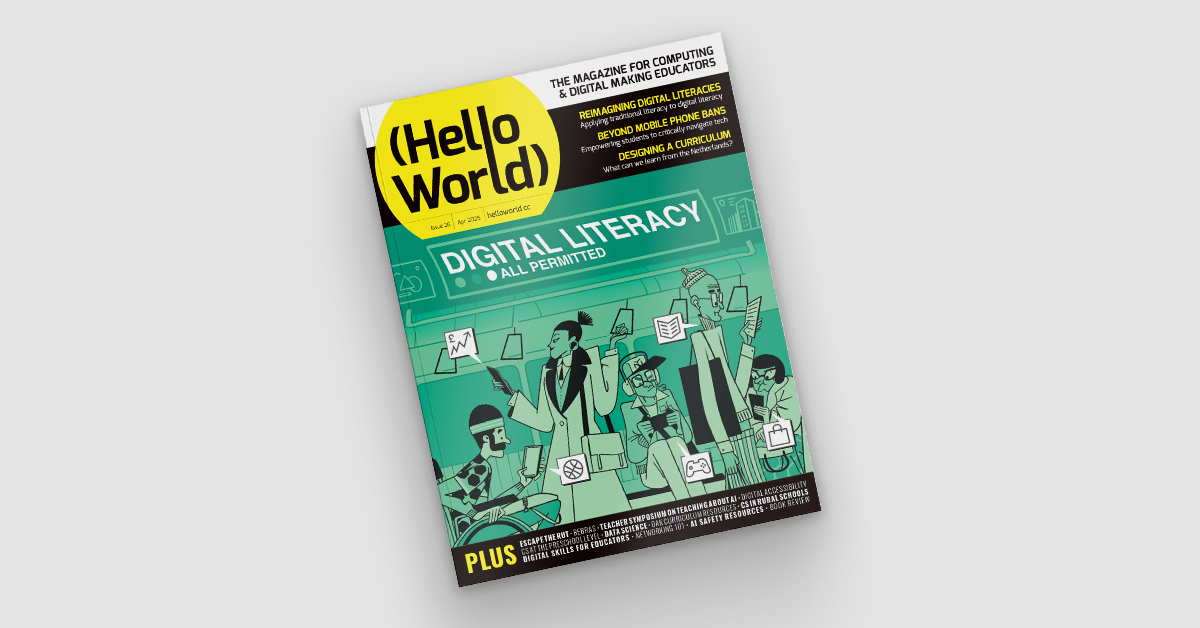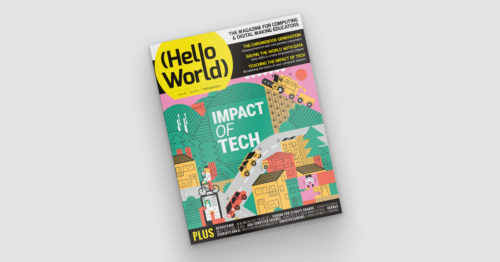Schlagwort: hello world magazine
-

Hello World #28 out now: Teaching programming
Reading Time: 2 minutesTake a minute to think about the technology you use every day. How many programming hours went into the way you are reading this blog post? What discussions and solutions built the browser you’re using? We take for granted all the clever, creative programming that goes into the technology we use in…
-

Hello World 27 out now: Integrated computer science
Reading Time: 3 minutesWhile in some countries, such as England, computing is taught as a standalone subject, in others, like the USA, computing concepts are integrated across the school curriculum. In our brand-new issue of Hello World, out today for free, educators share ways to integrate computer science into your classroom. Integrating CS to broaden…
-

Hello World #26 out now: Digital Literacy
Reading Time: 4 minutesWe often believe we understand the meaning of ‘digital literacy’, but it can be a misleading term. Do we mean digital skills? Online safety? Where does AI fit in? As computer science education evolves to meet the needs of our increasingly digital world, we believe that true digital literacy empowers young people…
-

Hello World #24 out now: Impact of tech
Reading Time: 3 minutesDo you remember a time before social media? Mobile phones? Email? We are surrounded by digital technology, and new applications impact our lives whether we engage with them or not. Issue 24 of Hello World, out today for free, gives you ideas for how to help your learners think openly and critically…



